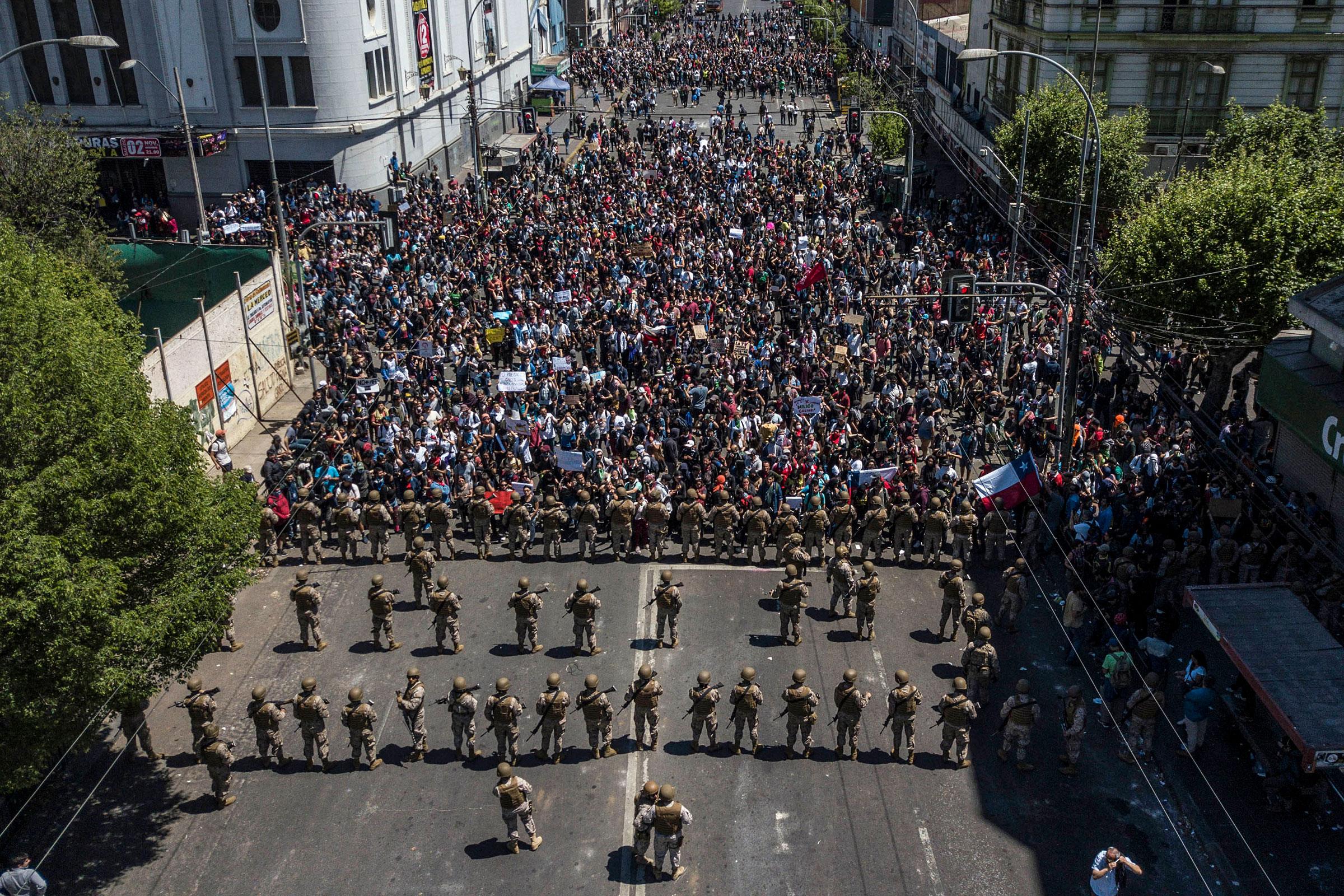It made a brief debut in the UK media at the start of last week but has since been mostly forgotten. You may find one of two articles from the BBC or the Guardian but other than that there seems to have been somewhat of a radio-silence outside of the Latin American continent regarding the current situation in Chile, one of South America’s more exemplary countries.
On 18th October, tensions began to rise in Santiago de Chile after a 4% rise in the capital’s Metro prices. At first, many people outside of the continent were confused what the fuss was about, but the reality is that this was just the tip of the iceberg. Decades of water privatisation, poor health care and public education, and a drastic imbalance in salaries (some politicians and elites are said to have salaries 33 times higher than the national minimum wage of around £310/month) have all contributed to a general sentiment of betrayal and outrage. In most countries around the world, it is incomprehensible to spend around one sixth (£50) of your monthly salary travelling to work.
To aggravate the situation further, Chileans have found their plight manipulated by media outlets in favour of the same government they are pushing against. Most reports highlight the minority of protestors that are using violence to get their message across, instead of the thousands of people who are taking to the streets to peacefully protest for much-needed change within the country. Constricted by the same constitution that gave rise to Pinochet’s dictatorship as recently as 1973-90, one of the main methods of protest has been the ‘cacerolazo’ where people march through the streets (or during the curfew of 8pm-6am, from their balconies or windows) with a pan and a wooden spoon to make some heart-felt noise.
In this respect, social media platforms have shone light where news outlets haven’t to the heavy-handed response from police and the army, which latest figures say left 18 people dead and thousands detained. Footage has shown even the most vulnerable of protestors being attacked; a 12-year-old girl with a rubber bullet wound, an elderly person with a walking frame in direct line of fire, tear gas being hurled at peaceful protestors, despite pleas of ‘stop, there’s children here!’. Water cannons, soldiers setting fire to buildings and trains, messages being spread far and wide in search of missing loved ones. It is not difficult to understand how many Chileans, whether they lived through the dictatorship or simply know someone who did, have drawn comparisons between Piñera and Pinochet.
As a university student spending a year teaching English in the country’s second biggest city, Antofagasta, it has been fascinating to witness just how much of my horrifying surroundings has escaped reports back home. Pot and spoon in hand, Danis Andrea Olivares Rojas recounts to me how she was just 19 when the dictatorship began in 1973 Chile. Now 68, she explains that she and her neighbours are not scared for themselves, but for the young people whose futures lie ahead in these uncertain times. Addressing Piñera directly, she calls for him to take the military off the streets and remove the curfew because ‘all of these protests will happen regardless.’
Most recently, on 26th October, it was announced that the curfew (Toque de Queda) had been lifted in Calama and Antofagasta. Though seemingly a victory for Chileans, it seems to have only spurred people on to continue fighting. With international organisations such as the United Nations announcing on Friday (25th) that they are launching investigations into suspected human rights violations during the past fortnight, a new wave of messages and memes have swept social media, highlighting the well-timed change of heart from Piñera. What was initially a declaration that ‘Estamos en Guerra’ (‘We are at war’), has conveniently changed to that of peace and reform, with Friday’s tweet regarding protests in the capital that, “We have all changed. Today’s joyful and peaceful march… opens hopeful paths into the future.”.
In response, the general consensus seems to be that ‘this is only the beginning,’ and ‘we haven’t achieved anything yet,’: an indication that unless there is satisfactory change in Chile, the pots and pans will not be returning to the kitchen any time soon.
Image Credit: Time Magazine

